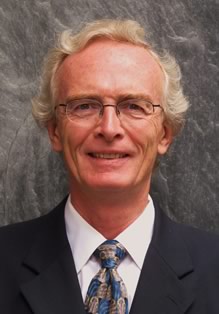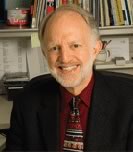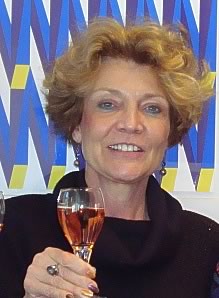November 9, 2012
MANAGING MIGRATION IN THE NATIONAL INTEREST: the Cases of CANADA, AUSTRALIA, and NEW ZEALAND

Howard Duncan
Dr. Howard Duncan, Executive Head,
Metropolis, Canada
Forget the tired, the poor, the huddled masses: send us your smart and your skilled! Faced with shrinking and aging populations, most developed countries will have to resort to encouraging immigration. But few have created programs designed to address their country’s demographically-rooted economic needs. Three countries — Australia, Canada and New Zealand — have designed “point systems” to select permanent migrants. But will these programs work? Will they be effective enough to maintain the levels of economic prosperity each country hopes to achieve?
Dr. Howard Duncan is Executive Head of the Metropolis Project, the world’s largest network of researchers, government officials, international organizations, and civil society organizations in the field of migration and population diversity. Its aim is to enhance policy through empirical research and to support societies that are managing the many effects of migration. Dr. Duncan’s recent projects have included the creation of the Metropolis North America and Metropolis Asia initiatives and the creation of a Metropolis Secretariat in Asia (Seoul/Goyang-si and Manila) to supplement the Secretariats in Ottawa and Amsterdam. He has just moved the Ottawa Secretariat operations from the Government of Canada to Carleton University in Ottawa. Dr. Duncan received his Ph.D. in Philosophy from the University of Western Ontario. He was a post-doctoral fellow there and subsequently taught philosophy at the University of Ottawa and the University of Western Ontario.
October 7, 2012
IMMIGRATION TO THE UNITED STATES: Recent Trends and Turnarounds

Jeff Passell
Jeff Passel, PEW Hispanic Center,
at Sandia Prep School Theater
Dr. Jeff Passel, Senior Researcher at the PEW Hispanic Center examines the Asian wave, the Mexican ebb, and other new trends in immigration. The PEW Research Center is a nonpartisan “fact tank” that provides information on issues, attitudes and trends that are shaping America and the world. Dr. Passel’s talk, based on PEW’s extensive resources, will bring us up to the minute on the force that is quietly transforming the nature of our society.
September 21, 2012
Immigration, Anti-Discrimination, Citizenship: What Can the U.S. Learn from the European Union?

Dr. Joyce Marie Mushaben
Dr. Joyce Marie Mushaben, University of Missouri (UMSL)
The collapse of the Iron Curtain in 1989 led to a dramatic enlargement of the European Union and quickly unleashed heated debates in EU member states about citizenship privileges and the responsibilities of democratic societies for human rights. Globalization has triggered transnational “battles for the best brains.” Still, many EU citizens fear that new waves of immigration will overwhelm their countries. Since 2000 the European Union has nonetheless sought to remedy the problems of aging populations, youth unemployment and failed integration policies by granting new rights to long-term foreign residents under the concepts of active citizenship and social inclusion. The paradox is that local governments are much more willing to apply this controversial EU approach than many national governments. Professor Mushaben will explain the social, demographic and economic forces shaping these policies, outlining the long-term consequences of extending — or not extending — more participatory rights to non-nationals across Europe, in ways that might prove useful in the United States.
August 26, 2012
Who Is Moving & Why? An Overview of Recent Trends in International Migration
Dr. Hania Zlotnik
Retired Director, United Nations, Department of Economic and Social Affairs, Population Division
The first talk of the International Lecture Series “Immigration around the World and What We Can Learn from It” gave a broad overview of global immigration trends in the 21st century and provided a better understanding of how migration is changing our world.
April 26, 2012
“Euro Crisis & Beyond: What Does It Mean for the US?”
Antonio de Lecea, Minister of Economic and Financial Affairs,
European Union Delegation, Washington, DC
From 2008 to the present day, Europe has struggled with the effects of the global economic crisis. As Greece teeters on the edge of default and Eurozone countries like Italy, Spain, Portugal, and Ireland face the threat of insolvency, the question on everyone’s mind – What is next? Will the Eurozone crisis imperil the fragile economic recovery in the United States? Will Greece and possibly other countries leave the single currency? Could staggering unemployment, negative growth and harsh austerity measures lead to political instability? And most importantly – what does it mean to all of us? Will many of us continue losing money due to the market instability triggered by the Eurocrisis? Dr. Antonio de Lecea, the Minister of Economic and Financial Affairs at the European Union Delegation in Washington, DC will address these and other questions at the AIA luncheon.
April 21, 2012
EGYPT in REVOLUTION
Dr. Nathan Brown, George Washington University
Egypt is one of the most important, if not the most important Arab country in the world, but we know very little about the new and confusing mix of forces and politics that has emerged following the removal of Mubarak. After being ruled by the same president for thirty years, Egypt has entered a period of prolonged political transition. While the various political actors in Egypt–the military, Islamist groups, revolutionary youth, labor unions, and so on–are well known, these forces are forging a new set of rules for political life in a very uncertain setting. What sort of political order will arise in Egypt? How stable will it be? How democratic will it be? And how will it affect Egypt’s international position?
March 23, 2012
SAUDI ARABIA: A PROBLEMATIC ALLY?
Dr. Toby Jones, Rutgers University
On the surface, the “Arab Spring” does not seem to have touched Saudi Arabia, but in reality the Kingdom has followed pro-democracy protests very closely and has resisted demands from its own people for genuine political reform. Saudi Arabia has sent troops to help a fellow Sunni regime in Bahrain quell anti-regime protests and suppress the Shia majority in that Island country. The presentation will focus on the nature of Saudi stability, the impact of the “Arab Spring” on the core pillars of that stability, and the critical role of Saudi oil globally. The talk will also address the special US-Saudi relationship and the impact of active Saudi resistance to genuine political reforms on this relationship and on the future of the region’s largest hydrocarbon dinosaur.
March 16, 2012
Vladimir Putin. Russia: Lost In Transition?
Dr. Marina Oborotova
On March 4 Vladimir Putin was elected President of Russia for a third term. Presidential and parliamentary elections were accompanied by unprecedented demonstrations and disturbances. How did Vladimir Putin manage to become president of Russia again? How long will he be able to stay there? What will it mean for Russia? Who are the demonstrators? And what are their chances of changing Russian politics? Dr. Marina Oborotova will address these questions in her presentation .
February 26, 2012
PAKISTAN – FOUR FUTURES FOR A TROUBLED RELATIONSHIP
Dr. Timothy Hoyt, US Naval War College.
Pakistan is a critical American ally in its efforts to combat global terrorism. It has a large army, a significant nuclear arsenal, and a long – if troubled – history of alliance with the United States. Nevertheless, America’s relations with Pakistan are difficult – a fact brought home by the recent killing of Osama Bin Laden in a compound only thirty miles from Pakistan’s capital. As the U.S. re-examines its policies in South Asia, including a possible withdrawal from Afghanistan and a growing friendship with India, the U.S. also needs to consider its relationship with Pakistan and Pakistan’s future. Professor Timothy Hoyt of the U.S. Naval War College will lay out four different possible futures for Pakistan, and lead a discussion of how the U.S. can best contribute to Pakistani stability and development in the coming decades.
February 8, 2012
AIA Russian Art Talk & Dinner in Primary Colors
Pictures at an Exhibition: A Magical Virtual Tour of Russian Art at Moscow’s Tretyakov Gallery
Dr. Marina Oborotova
Dr. Marina Oborotova takes you on a virtual tour of the Tretyakov Gallery – the best collection of Russian art in the world. She presents history of the collection, speaks about the founder – Pavel Tretyakov, introduces you to the most prominent Russian painters and shows the masterpieces of the gallery.
January 22, 2012
THE NEW OTOMANS: TURKEY’S MUSLIM NATIONALISTS
Dr. Jenny White, Boston University
To all appearances, Turkey is caught in a fierce battle between secularist and Muslim sectors of the population, with one side accusing the other of heavy-handed imposition of its own values and practices. Since the 1980s new “self-consciously” Muslim elite has mounted a powerful political and economic challenge to the traditional secular elite. In doing so, it has developed an alternative unorthodox definition of the nation based on a nostalgic revival of Turkey’s Ottoman past, pushing aside the Republican model. The outcome has been revolutionary in its transformation of Turkish society and politics, but this transformation does not map neatly onto our expectations of what “secular” and “Muslim” mean.
